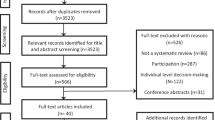Abstract
Objectives: The objective of this paper is to discuss principles relevant to ethical deliberation in public health.
Methods: Conceptual analysis and literature review.
Results: Four principles are identified: The Harm Principle, The Principle of Least Restrictive Means, The Reciprocity Principle, and The Transparency Principle. Two examples of how the principles are applied in practice are provided.
Interpretation: The paper illustrates how clinical ethics is not an appropriate model for public health ethics and argues that the type of reasoning involved in public health ethics may be at potential variance from that of empirical science. Further research and debate on the appropriate ethics for public health are required.
Résumé
Objectifs: Étudier les principes d’un débat éthique en santé publique.
Méthode: Analyse notionnelle et enquête bibliographique.
Résultats: Nous avons cerné quatre principes (réduction des méfaits, choix des moyens les moins restrictifs, réciprocité et transparence) et fourni deux exemples de leur application dans la pratique.
Interprétation: Le modèle de déontologie clinique ne convient pas à la santé publique, car le type de raisonnement employé pour les questions éthiques en santé publique peut être différent de celui des sciences empiriques. Il faudrait pousser la recherche et le débat pour définir un modèle éthique qui convienne à la santé publique.
Similar content being viewed by others
References
Coughlin SS, Etheredge GD. On the need for ethics curricula in epidemiology. Epidemiology 1995;6(5):566–67.
Coughlin SS, Katz WH, Mattison DR. Ethics instruction at schools of public health in the United States. Association of Schools of Public Health Education Committee. Am J Public Health 1999;89(5):768–70.
Weed DL. Towards a philosophy of public health. J Epidemiol Community Health 1999;53(2):99–104.
Beauchamp TL. Principalism and its alleged competitors. Kennedy Inst Ethics J 1995;5(3):181–98.
Gostin LO. Public health, Ethics, and human rights: A tribute to the late Jonathan Mann. J Law Med Ethics 2001;29(2):121–30.
Mill J. On liberty. In: Wishy B (Ed.), Prefaces to Liberty: Selected Writings. Lanham, MD: University Press America, 1959.
Coker R. Detention and mandatory treatment for tuberculosis patients in Russia. Lancet 2001;358(9279):349–50.
Harris J, Holm S. Is there a moral obligation not to infect others? BMJ 1995;311(7014):1215–17.
Habermas J. The Theory of Communicative Action. Vol 1. Reason and the Rationalization of Society. McCarthy, T. (trans). Boston: Beacon Press; 1984.
Annas GJ. Control of tuberculosis—the law and the public’s health. N Engl J Med 1993;328(8):585–88.
Bayer R, Dupuis L. Tuberculosis, Public health, and civil liberties. Annu Rev Public Health 1995;16:307–26.
Singleton L, Turner M, Haskal R, et al. Long-term hospitalization for tuberculosis control. Experience with a medical-psychosocial inpatient unit. JAMA 1997;278(10):838–42.
Elliott SJ, Taylor SM, Walter S, et al. Modelling psychosocial effects of exposure to solid waste facilities. Soc Sci Med 1993;37(6):791–804.
Horton R. The grammar of interpretive medicine. CMAJ 1998;159(3):245–49.
Longino H. Science as Social Knowledge. Values and Objectivity in Scientific Inquiry. Princeton, NJ: Princeton University Press, 1990.
Walton D. The New Dialectic: Conversational Contexts of Argument. Toronto: University of Toronto Press, 1998.
Hill A. The environment and disease: Association or causation? Proc Roy Assoc Med 1965:295–300.
Weed DL. Underdetermination and incommensurability in contemporary epidemiology. Kennedy Inst Ethics J 1997;7(2):107–27.
Oreskes N, Shrader-Frechette K, Belitz N. Verification, Validation and confirmation of numerical models in the earth sciences. Science 1994;263:641–46.
Jadad AR, Cook DJ, Browman GP. A guide to interpreting discordant systematic reviews. CMAJ 1997;156(10):1411–16.
Barrow J. The Limits of Science and the Science of Limits. Oxford: Oxford University Press, 1998.
Author information
Authors and Affiliations
Corresponding author
Additional information
Acknowledgements: Dr. Upshur is supported by a Canadian Institutes of Health Research New Investigator Award and a Research Scholarship from the Department of Family and Community Medicine, University of Toronto. The author thanks Shari Gruman for her assistance in preparing the manuscript.
Rights and permissions
About this article
Cite this article
Upshur, R.E.G. Principles for the Justification of Public Health Intervention. Can J Public Health 93, 101–103 (2002). https://doi.org/10.1007/BF03404547
Received:
Accepted:
Published:
Issue Date:
DOI: https://doi.org/10.1007/BF03404547




